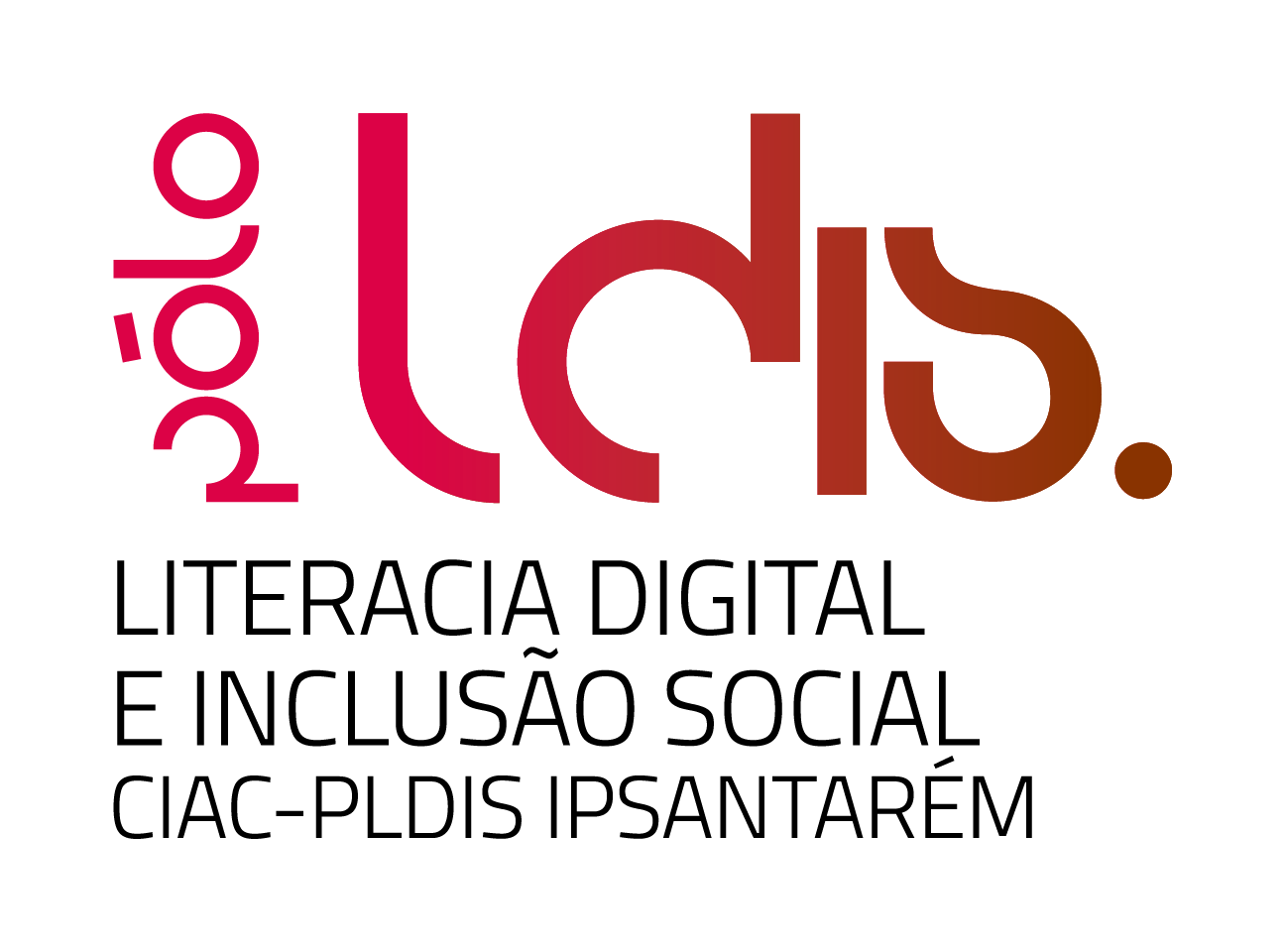FCT Announces New Open Access Policy for Scientific Publication

The Foundation for Science and Technology (FCT) has launched a new Open Access Policy for scientific publications resulting from FCT-funded research, significantly updating the mechanisms in place since 2014. Effective for funding applications submitted after February 7, 2025, this policy applies to scientific articles, books, book chapters, monographs, doctoral theses, and master’s dissertations. It reinforces the principle that publicly funded research should yield publicly accessible and reusable results, enhancing scientific collaboration, visibility, and progress. Researchers can access detailed guidelines, rights retention strategies, and FAQs online. Additionally, a dedicated support website has been created to assist them throughout the open-access publication process. The policy defines different open-access publishing routes: Gold Route: Immediate open access via journals, books, or publishing platforms. Green Route: Open access through the RCAAP repository network after publication in closed-access formats. Transformative Route: Open access publishing in hybrid journals under transformative agreements. For FCT-funded doctoral theses or master’s dissertations, publication requirements vary based on the awarding institution. Portuguese institutions must deposit theses in an RCAAP repository within 60 days of degree conferral, while authors from foreign institutions are responsible for self-depositing within the same timeframe. A key aspect of this policy is the elimination of embargo periods and mandatory rights retention, ensuring that at least the accepted manuscript version is available in open access. This revision builds on a decade of experience, aligns with global developments in open-access policies from UNESCO and the EU, and reflects FCT’s commitment to the Plan S initiative led by cOAlition S and supported by Science Europe. more information
New European Innovation Agenda: A New Wave of Technology and Social Progress
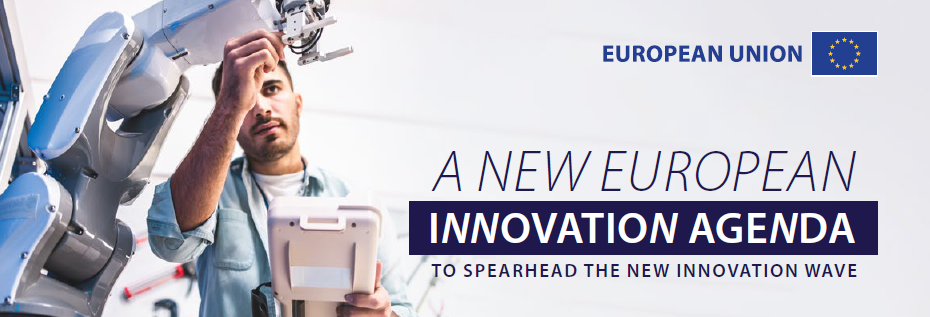
The European Commission has presented the “New European Innovation Agenda”, an ambitious initiative aimed at positioning Europe as a global leader in the next wave of technological innovation. This plan seeks to drive growth and the development of disruptive technologies while addressing crucial social and environmental challenges. The new agenda places a strong emphasis on deep tech innovation, which is essential for finding advanced solutions in the following areas: Reducing greenhouse gas emissions, contributing to the fight against climate change; Promoting sustainable and competitive economies; Advancing European technological sovereignty and enhancing food security; Improving connectivity and social impact, ensuring inclusive innovation across all European regions. Key measures include: Training 1 million professionals in advanced technologies, with a special focus on including women and diversifying the workforce; Creating “regional innovation vouchers” to integrate local players into European innovation ecosystems; Simplifying access to funding for startups and scale-ups through new venture capital mechanisms and reduced bureaucracy. The New European Innovation Agenda also highlights the importance of fostering collaboration between the public and private sectors, encouraging an innovative mindset that inspires the rest of the world. This initiative not only aims to transform Europe into a technological powerhouse but also to ensure that technological progress brings tangible benefits to society, creating solutions that improve citizens’ lives and strengthen the EU’s economic and environmental resilience. More information at: New European Innovation Agenda
Demola Global Workshop: Competence and Culture for Innovation and Future Society
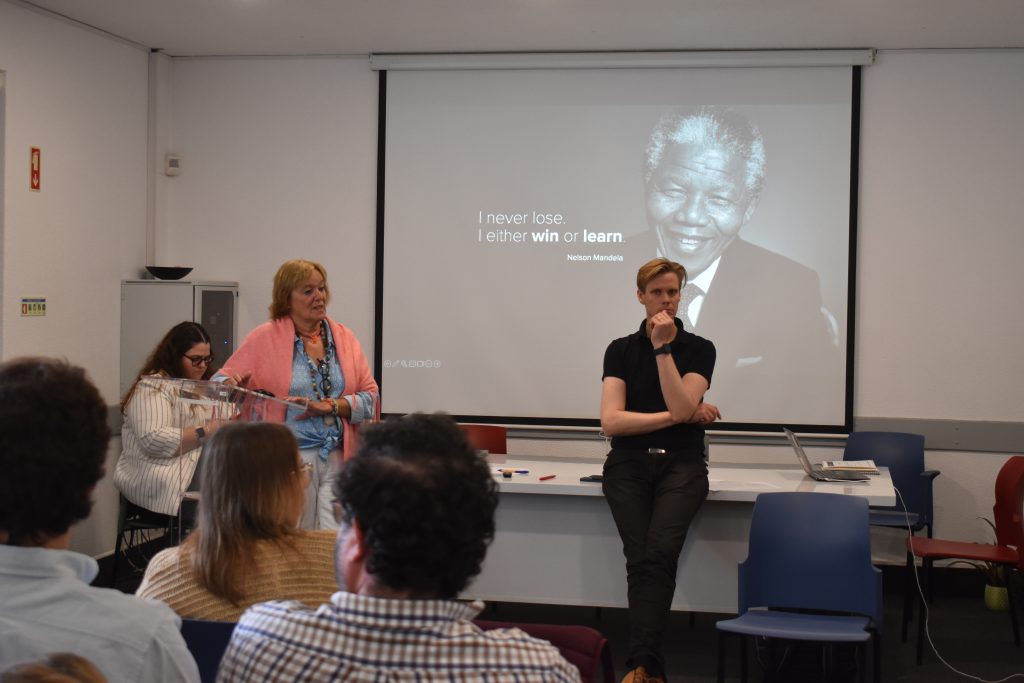
On October 29, the Demola Global Workshop, titled “Competence and Culture for Innovation and Future Society”, was held at ISPOT, IPSantarém. The event featured Ville Kairamo as a speaker and brought together professors, researchers, and entrepreneurs to discuss innovation and the future of society. The workshop was organized by the coordinators of the Digital Literacy and Social Inclusion Hub, Maria Potes Barbas and Filipe Madeira. Recording here
Portugal-Germany Bilateral Cooperation 2023: international researcher mobility projects

Program: Foundation for Science and Technology The scientific and technological cooperation agreement between Portugal and Germany, established in 1990, provides for the two countries to establish a program to promote cooperation between professors and researchers, including young researchers in higher education establishments and related research institutions in Portugal and Germany. One of the objectives is to encourage the exchange of researchers by supporting their mobility within the framework of international projects. The projects will have a maximum duration of 24 months and will be renewable annually under the terms of Articles 13 and 14 of the regulation. The annual FCT funding per project is 2,000 euros.
João Monjardino Prize 2023 – Mental Health: Clinical and Services Research

Program: Foundation for Science and Technology The Prize aims to distinguish the best article published under the theme “Mental Health: Clinical and Services Research”, which describes the results of research carried out by a researcher at an institution in the national scientific and technological system. Under the Protocol signed between the Foundation for Science and Technology, I.P. and the Professor Francisco Pulido Valente Foundation, the João Monjardino Prize 2023 is open to applications.
Multiannual Program for Financing R&D Units 2023/2024

The external evaluation of R&D units aims to develop and enhance the National Science and Technology System (SNCT) in all areas of knowledge and to strengthen and densify it across the country. R&D units are made up of human resources, equipment and technical infrastructures dedicated to R&D, training and scientific and technological dissemination, bringing together critical mass and providing working environments conducive to scientific creativity, promoting talent and developing skills and attractive scientific careers.
Webinars 2021
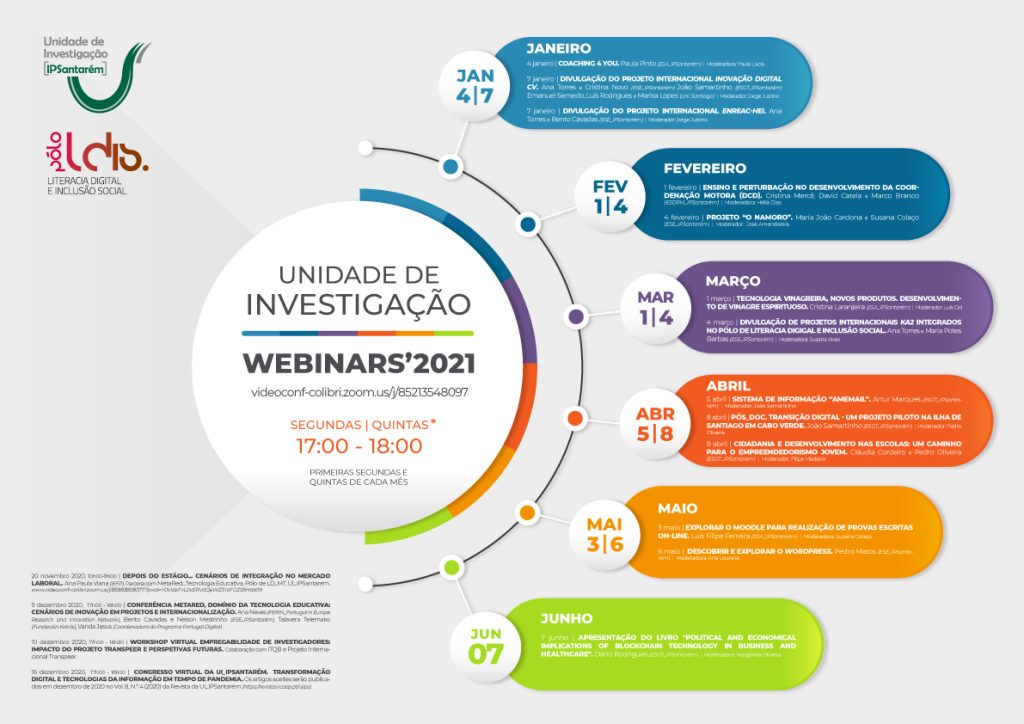
The UI_IPS Webinars’2021 start on January 4th. Every first Monday and Thursday of the month from 5pm to 6pm, the Research Unit has prepared a wonderful agenda for readers.
Serving research communities – extending the Open Call collection deadline

The 2020 collection date for the European Cooperation in Science and Technology (COST) Open Call will be extended by two weeks, with the new deadline for proposals for COST actions becoming Friday, November 13, instead of Friday, October 29. This decision was taken in recognition of the many challenges faced by potential applicants throughout the year due to the COVID-19 pandemic. This open call marks the last occasion under Horizon 2020 for potential COST action networks to apply for funding.
Politécnico de Santarém’s Digital Literacy and Social Inclusion Hub Receives Prestigious Awards

On April 9, 2024, the Instituto Politécnico de Santarém, through its Digital Literacy and Social Inclusion Hub (PLDIS_CIAC), was recognized with two significant awards for its impactful initiatives in the field of digital literacy and social inclusion. The first award, which the Hub received as a partner, was the 1st Award for the project Entrepreneurial Women in ICT – Enhancing Skills to Bridge the Digital Divide. This recognition highlights the Hub’s contributions to empowering women in the field of Information and Communication Technology (ICT), aiming to reduce the digital divide by improving access to digital skills and opportunities. Additionally, the Hub received an Honorable Mention as the leader of the project FrontWinners – (Re)Skilling for Mentors with Immersive Experiences. This project focuses on the innovative approach of using immersive technologies to enhance mentorship skills and reskill individuals, preparing them to effectively support others in the rapidly evolving digital landscape. These awards reflect the ongoing commitment of the Instituto Politécnico de Santarém and its Digital Literacy and Social Inclusion Hub to driving positive social impact through education,
Webinar on 2024 Doctoral Scholarship Program in Non-Academic Environments
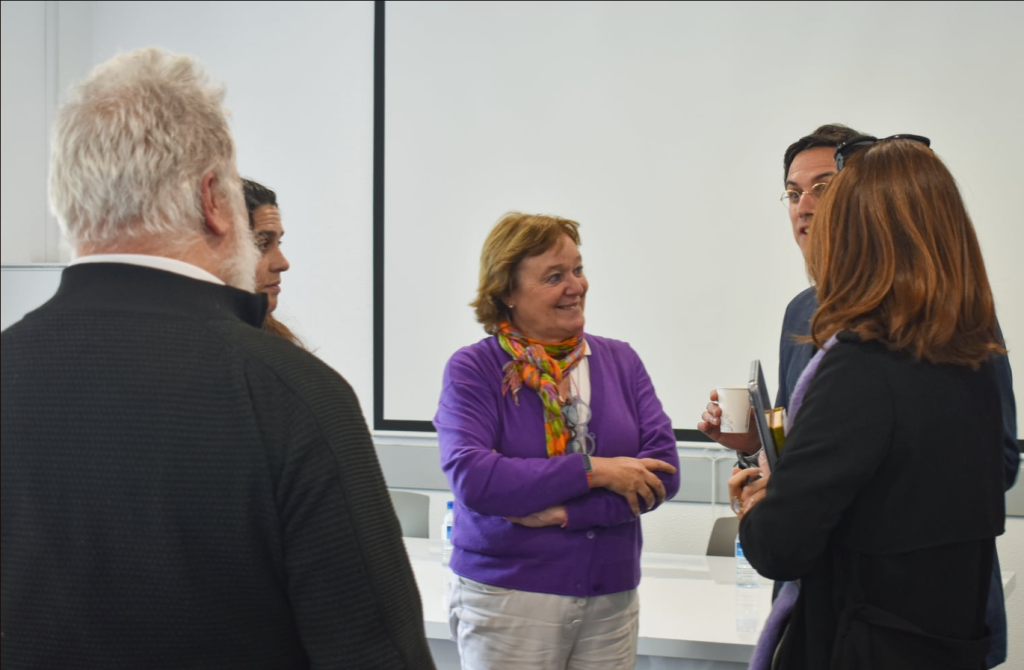
On April 4, 2024, Francisco Santos, Vice-President of the Foundation for Science and Technology (FCT), hosted a webinar focusing on the 2024 Doctoral Scholarship Program in Non-Academic Environments. The event provided attendees with in-depth insights into scholarship opportunities aimed at supporting doctoral research in settings beyond academia. During the session, Francisco Santos emphasized the program’s importance in fostering collaboration between academic research and real-world applications. He outlined key details about the application process, eligibility criteria, and the significant role these scholarships play in equipping researchers with skills relevant to industry and societal needs. This initiative reflects FCT’s ongoing commitment to promoting innovation and practical problem-solving by encouraging doctoral candidates to engage with non-academic organizations. It aims to bridge the gap between research and broader societal challenges, ensuring a lasting impact on the community and industry. Álbum photo Recording
